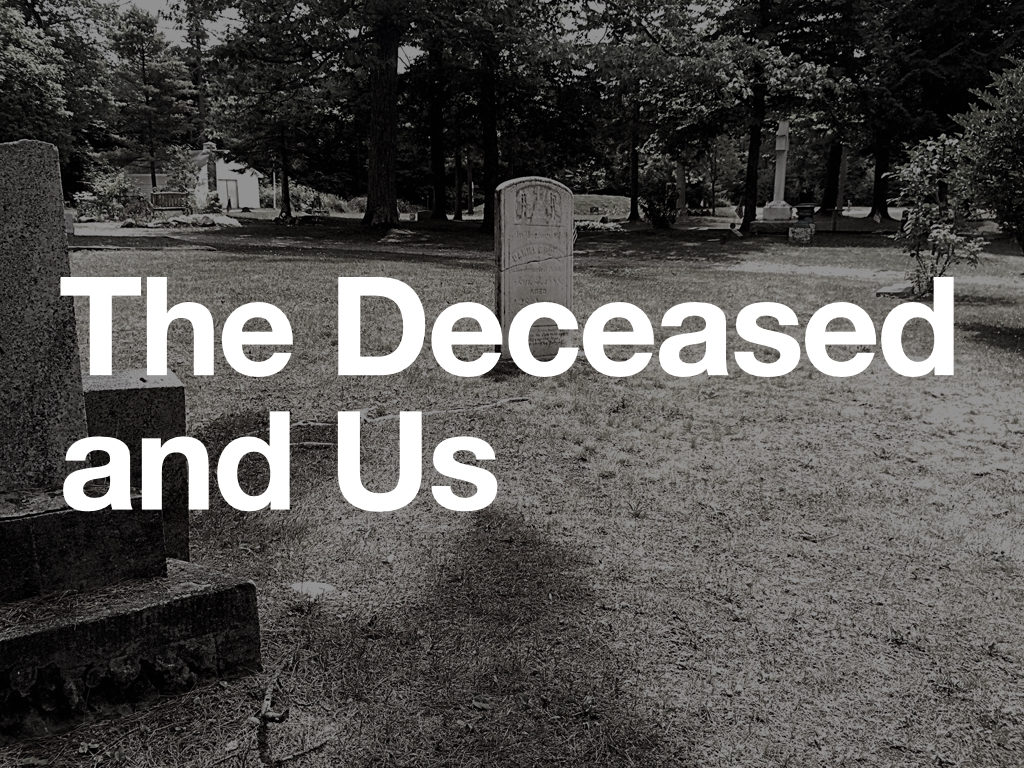
How We Treat the Deceased Reflects Who We Are
By Christopher Dodson
Executive Director
North Dakota Catholic Conference
November 2022
There seems to be no limit to what people will consider doing with human remains. Most of us are familiar with cremation and the popularity of "spreading ashes” here and there. But entrepreneurs continue to find new ways to use human remains.
A person can now have remains made into all sorts of jewelry or glass art. They can turn them into artificial stones. They can get a tattoo with ink made with the remains. They can send the remains to space. They can make them part of a coral reef. They can shoot them off as part of a fireworks display. They can make them part of a vinyl record. They can have them made into bullets and shotgun cartridges. They can even make them into pencils. And yes, the shavings left over from sharpening the pencils are also human remains.
From a Catholic perspective, these actions are scandalous, disrespectful, and even horrifying.
Catholic teaching is centered on the life and dignity of the human person because each person is created in the image and likeness of God. The human body is a physical, material manifestation of God’s image and shares in that dignity (Catechism of the Catholic Church, no. 364). Even in death, we show reverence and compassion for God’s creation by praying for and laying to rest the departed and caring for those grieving the death of a loved one.
The Catholic Church does not forbid cremation, but she does ask that, when possible, the body be available for the funeral rite and that the dignity of the body be respected after cremation. This means that the remains should be placed in a respectable container and kept together.
The trend toward more “alternative” uses of the human body does not stop the use of cremated remains. Several states have legalized alkaline hydrolysis and composting of human remains. Alkaline hydrolysis reduces the human body to bone ash and a liquid substance through a chemical reaction. While the bone ashes might be returned to the decedent's family, the liquid substance that is produced in the process, which can amount to 300 gallons, is usually flushed into the public waste system. Human composting involves placing the body in a box with wood chips. The box is covered and every few days the box — that is, the human body — is rocked, just as you would do with composting bin. The resulting “soil” is used like any other soil.
Usually, the only groups opposing legalizing these methods are the state Catholic conferences. The North Dakota Catholic Conference opposed a bill to legalize alkaline hydrolysis in 2017.
Someone might wonder why the Catholic Church would oppose legalizing these practices for non-Catholics. After all, Catholic teaching on respecting the deceased human body sounds very “Catholic.” It is about our creation in the image of God, Christ’s incarnation into a human body, and the resurrection of our bodies; all things that non-Catholics might not believe.
It is a good question, especially since the Catholic Church typically does not take a position on a public policy matter unless the position can be supported by reason alone and without resorting to doctrine. For example, someone does not need to believe in the Ten Commandments to conclude that theft is wrong.
The Church opposes the legalization of these methods because how people treat the deceased says something about who we are as a community and society. It is not just a “Catholic thing.” It is a human thing.
That is why all communities have laws about how deceased human bodies are treated. North Dakota law, for example, tightly regulates how deceased persons are moved and interred. It prohibits dissection of the body except under limited circumstances. It prohibits selling human bodies. It prohibits exhuming human bodies after burial except under exigent circumstances. It prohibits the desecration of, and sexual acts with, dead bodies.
Not all of these laws exist for health and safety reasons. Some of them exist because the acts prohibited offend the community’s standards for respectability. Human composting and alkaline hydrolysis offend — or should offend - the community. The more we treat the body as mere material that can be used and treated like a commodity, the more we diminish respect for our own bodies and the bodies of those around us. When that happens, human persons themselves — body and soul from conception to natural death — are disrespected.
What We Do
The North Dakota Catholic Conference acts on behalf of the Roman Catholic bishops of North Dakota to respond to public policy issues of concern to the Catholic Church and to educate Catholics and the general public about Catholic social doctrine.

Contact Us
North Dakota Catholic Conference
103 South Third Street, Suite 10
Bismarck, North Dakota
58501
1-888-419-1237
701-223-2519
Contact Us

